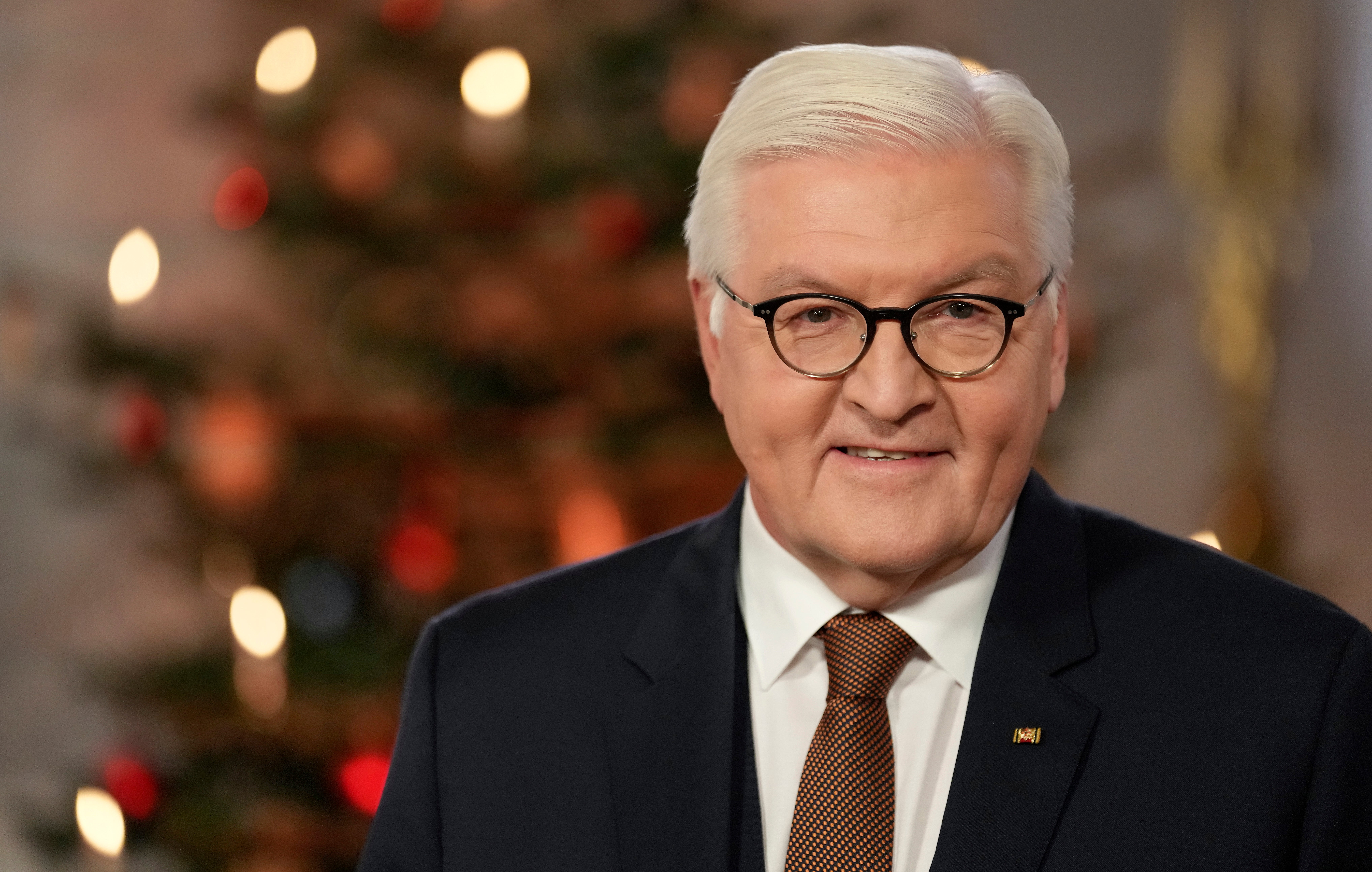Main German opposition party backs second term for president
Germany’s biggest opposition party says it will support the reelection of President Frank-Walter Steinmeier

Germany's biggest opposition party said Wednesday that it will support President Frank-Walter Steinmeier s reelection, giving the incumbent a clear run to a second term.
A few figures in ex-Chancellor Angela Merkel s center-right Christian Democratic Union had advocated nominating a woman to run as Germany's next head of state when a special assembly meets on Feb. 13 to elect a new president. Germany hasn't yet had a female president.
But the chances of a challenger being elected more or less evaporated on Tuesday when the Greens became the last of the three parties in new Chancellor Olaf Scholz s government to endorse a second term for Steinmeier. The incumbent, who was long a member of Scholz's center-left Social Democrats and turned 66 on Wednesday, is widely respected across Germany's political mainstream.
The CDU and its Bavarian sister party, the Christian Social Union, decided to back Steinmeier because the country needs “a credible voice that brings people together and doesn't marginalize them” at a time of tension and division fueled by the coronavirus pandemic, outgoing CDU leader Armin Laschet said. He praised the president's “great foreign policy expertise.”
“After weighing the different arguments, we decided in this phase in which Germany now stands to give our support to a president who is prepared to carry on doing his duty for the country,” Laschet said. “But I think that the time will come when a woman becomes president.”
The assembly that will choose the president is made up of the members of parliament's lower house and an equal number of representatives of Germany's 16 states. The parties in Scholz's coalition will have a majority, though not a huge one. The center-right bloc's backing removes any risk of Steinmeier facing a serious challenge.
Steinmeier announced that he would seek a second term in May, months before the parliamentary election that brought Scholz’s coalition to power. Although his chances of reelection looked far from certain at the time, he said he wanted to help heal divisions widened by the coronavirus pandemic.
Before becoming president, Steinmeier served twice as Merkel’s foreign minister. He was previously Chancellor Gerhard Schroeder s chief of staff.
Germany’s president has little executive power, but is considered an important moral authority. After a messy parliamentary election result in 2017, Steinmeier helped prod politicians to form a new coalition government rather than holding out for a new vote.
Bookmark popover
Removed from bookmarks